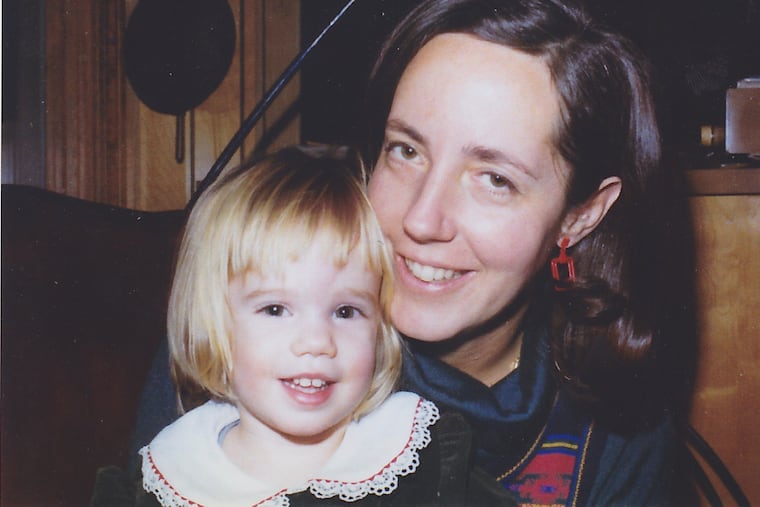Can we cancel Mother’s Day, please?
Most people don’t have a picture-perfect situation, and for them, the day is full of emotional landmines.

I was an only child, and all of my happiest childhood memories include my mother.
She loved me fiercely — even when I refused to walk beside her as a teenager, complained every week about taking out the garbage, and dropped out of college. At 16, I hit a parked car the day before I was set to take my driving test, and she let me take it anyway. (I passed.) Everything in me that’s good comes from her.
So you might be surprised to know that I would like to cancel Mother’s Day — even though I am a mother now, too. Ever since my mother died more than a decade ago, the holiday has been too painful. I dread it every year.
» READ MORE: How some Philly small businesses plan to use Mother’s Day to boost post-pandemic sales
You know who else probably hates this holiday? The roughly 20% of adult women who never have children. Some childless women likely tried to have children and couldn’t; think how sad the day is for them, as storekeepers and strangers tell them, unbidden, “Happy Mother’s Day.” Think about the women whose children have died, or have experienced miscarriage (roughly 20% of all pregnancies), or gave up a baby for adoption.
Then there are people who have mothers but don’t get along, and are happier when they don’t spend time together. A 2015 study found that more than 1 in 10 mothers are estranged from at least one of their adult children. What a painful reminder this day is for them.
So let’s cancel Mother’s Day.
Don’t get me wrong: I believe good mothers deserve to be celebrated. When my mother was diagnosed with ALS in 2005, I spent every weekend and most weeknights with her, commuting one hour via SEPTA to her house in the suburbs instead of my usual 20-minute walk home through Center City. I did all her grocery shopping, and cooked a week’s worth of meals for her on the weekends. When she got sicker, I left my job, not knowing if they would ever take me back.
I loved her fiercely, even when she asked me to sit with her all day for months as she was dying, then couldn’t understand why I didn’t have a boyfriend. She spent months on a secret project with her friend, then revealed a recording of her telling stories about her life — but it wasn’t for me. In it, she talks to her future grandchildren, who might never exist. Even after her death, I felt the weight of her opinion that my life, as it was, wasn’t enough; I needed to have a family.
But in the end, none of her imperfections mattered. She was my mother, and without her, my life felt empty of love. Within 24 hours after she was gone, I listened to her recording, even though it wasn’t for me. I needed to hear her voice.
I did eventually fulfill her wishes and have a baby. (“Finally!” I can hear her say.) But even though my life is filled with love again, I will always feel as if something is missing. Because a mother’s love is irreplaceable.
So I have hated Mother’s Day for 15 years, and still do, even though I am now entitled to all the fuss — the brunch and flowers and handmade cards — that often comes with it. It just reminds me of the fierce, unwavering love that I lost.
“It just reminds me of the fierce, unwavering love that I lost.”
And what about the message Mother’s Day sends? Just like my mother’s gentle (and not-so-gentle) nudges, this holiday hints that women, on their own, aren’t enough; their value to society deepens when they become mothers. (To anyone who wants to make the same argument about Father’s Day, I’d say we make much less of a fuss over that day, and men get plenty of affirmation outside of their role as fathers.)
Even the mothers of young kids who have the kind of picturesque families we see in greeting cards and ads are often not spending Mother’s Day the way they’d want to. I’m sure some do love a family brunch, but I’d wager that if you asked them, many would prefer a break from being a mother. Maybe a hotel room all to themselves, so they can sleep in peace as long as they want. Or a night out with their friends, no runny noses or sticky hands in sight.
So I propose that we get rid of Mother’s Day. (If so, it’s only fair to chuck Father’s Day, too.) If you have or are a wonderful parent, I’m genuinely happy for you. I want you to celebrate that. But you can do it any day of the year, without creating a holiday that everyone — no matter their personal circumstance — has to notice.
If my mother were here, I would tell her how much I loved her, even when we were both being insensitive jerks. And I wouldn’t care if it happened on May 8.
Alison McCook is The Inquirer’s assistant opinion editor. amccook@inquirer.com